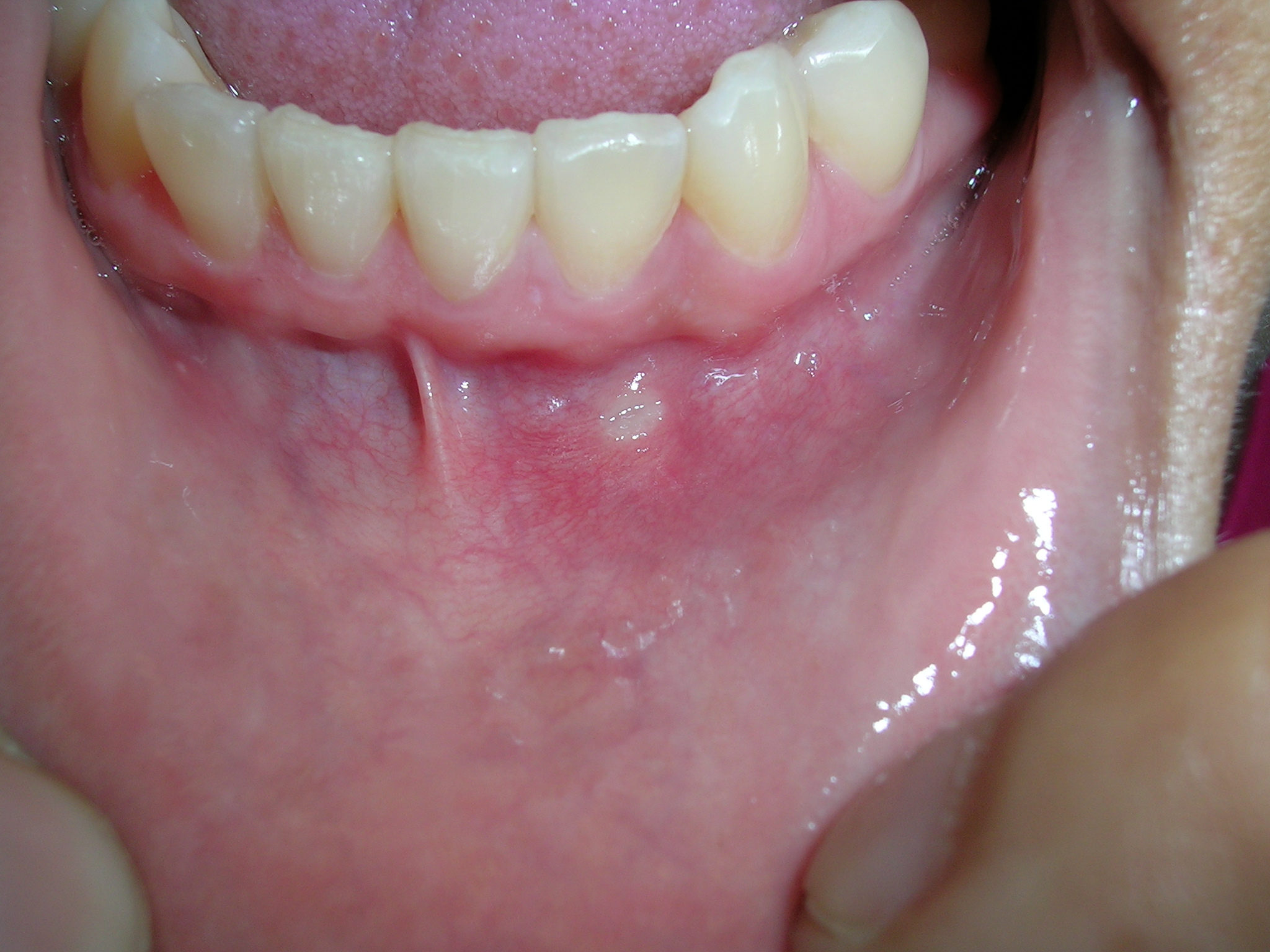The patient had an aphthous ulcer (canker sore). The precise pathogenesis remains unknown, although a variety of factors have been associated with recurrent aphthous stomatitis (RAS), including certain foods (milk sensitivity), medications (nonsteroidal anti-inflammatory drugs), vitamin deficiencies (zinc, iron, B12, folate), environmental factors (trauma, stress), viruses (herpes simplex virus, human immunodeficiency virus), and systemic diseases (celiac and Behçet’s). There are 3 clinical variations: minor (<1 cm), major (1-3 cm), and herpetiform (<3 mm). The most common minor form appears as rounded, well-demarcated, single or multiple ulcers <1 cm in diameter that usually heal in 10 to 14 days without scarring.
Most canker sores require no treatment or only periodic topical therapy. Topical corticosteroids such as fluocinonide gel or dexamethasone elixir can help provide some relief of symptoms. Viscous lidocaine can be used for symptom relief and may be particularly useful prior to eating. In severe cases of recurrent major aphthous stomatitis, systemic therapy with prednisone, colchicine, pentoxifylline, or azathioprine may be considered. This was a mild case, so the patient chose a corticosteroid gel to be applied twice daily until the ulcer resolved.
Photos and text for Photo Rounds Friday courtesy of Richard P. Usatine, MD. This case was adapted from: Gonsalves W. Aphthous ulcer. In: Usatine R, Smith M, Mayeaux EJ, Chumley H, Tysinger J, eds. The Color Atlas of Family Medicine. New York, NY: McGraw-Hill; 2009:176-177.
To learn more about The Color Atlas of Family Medicine, see:
* http://www.amazon.com/Color-Atlas-Family-Medicine/dp/0071474641


